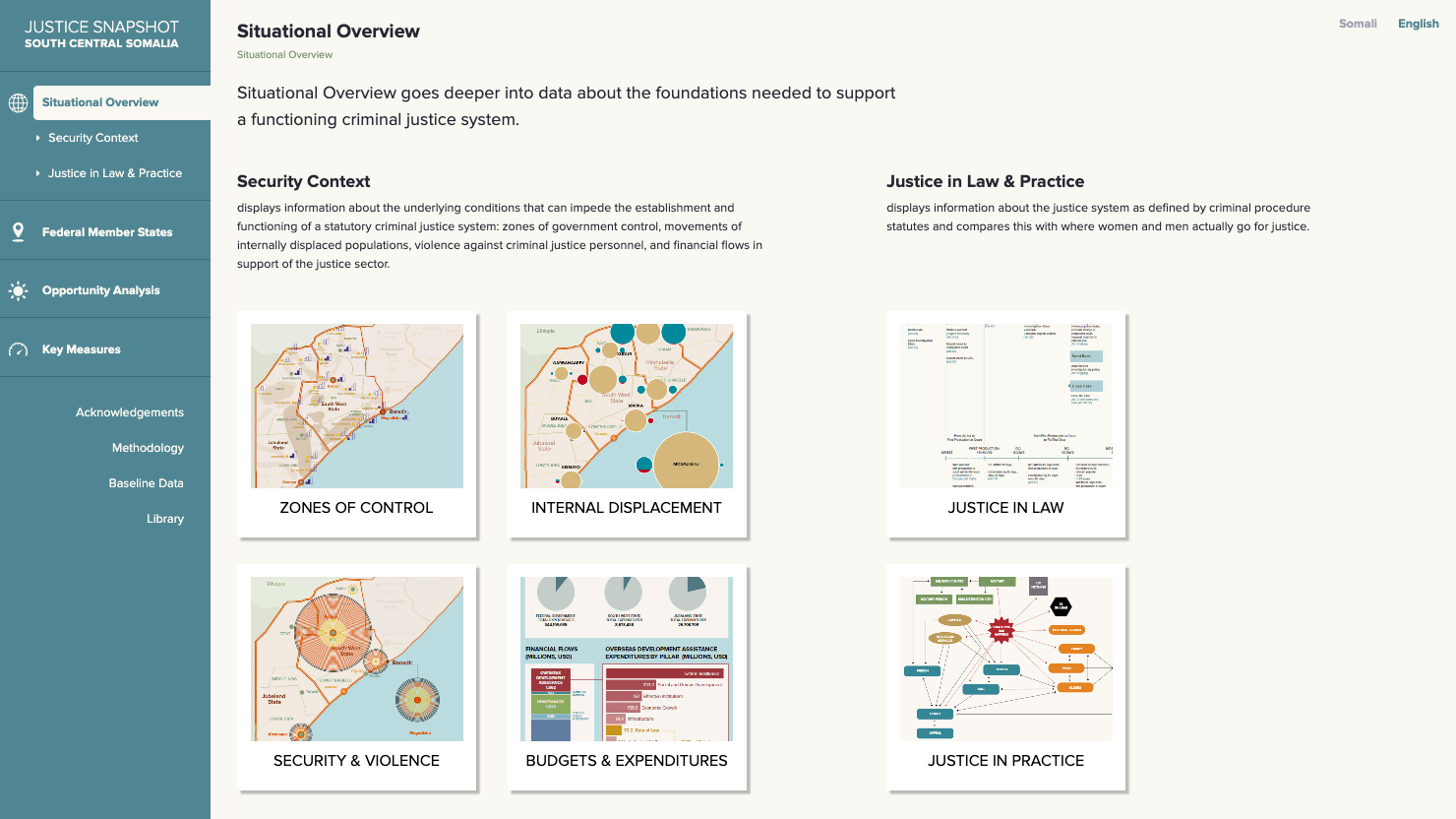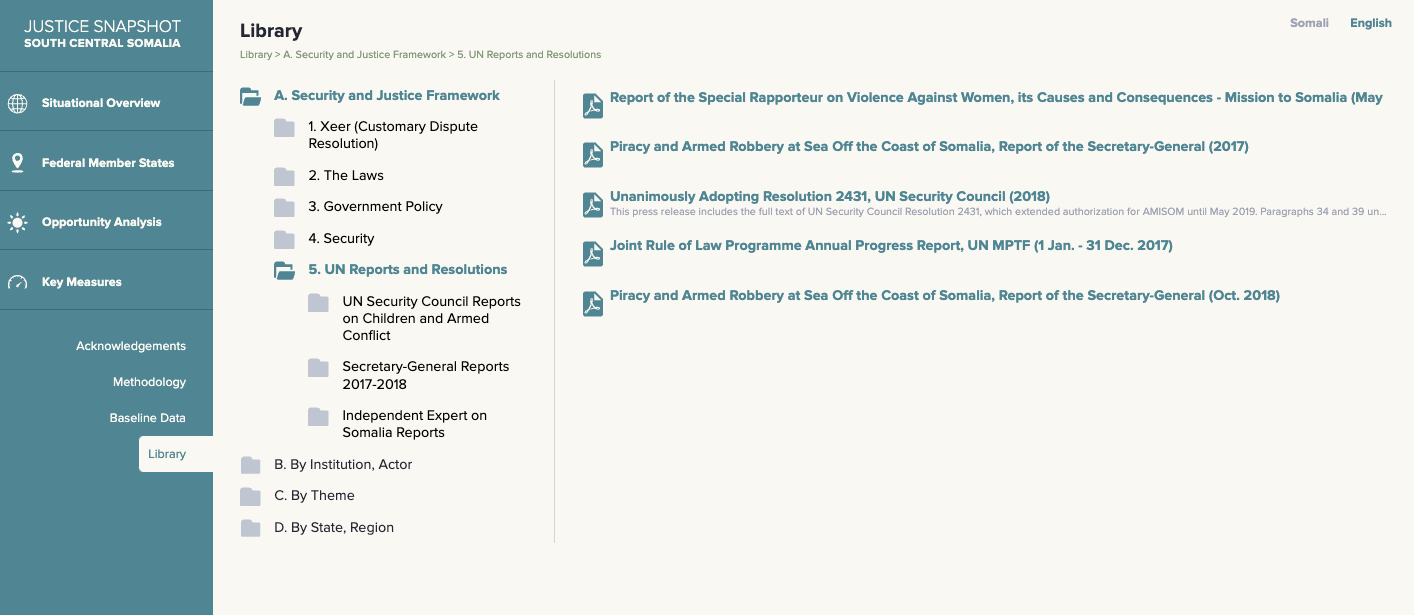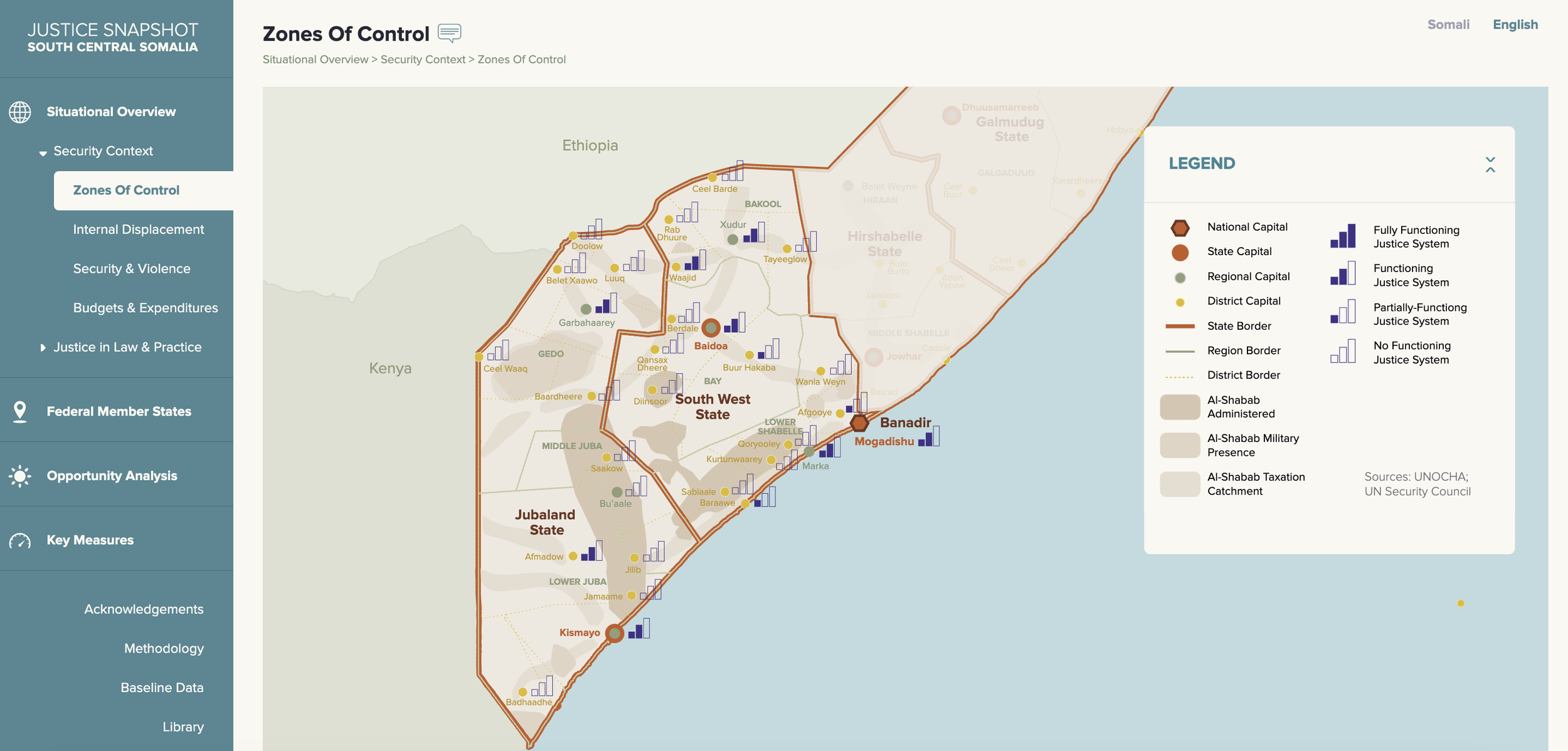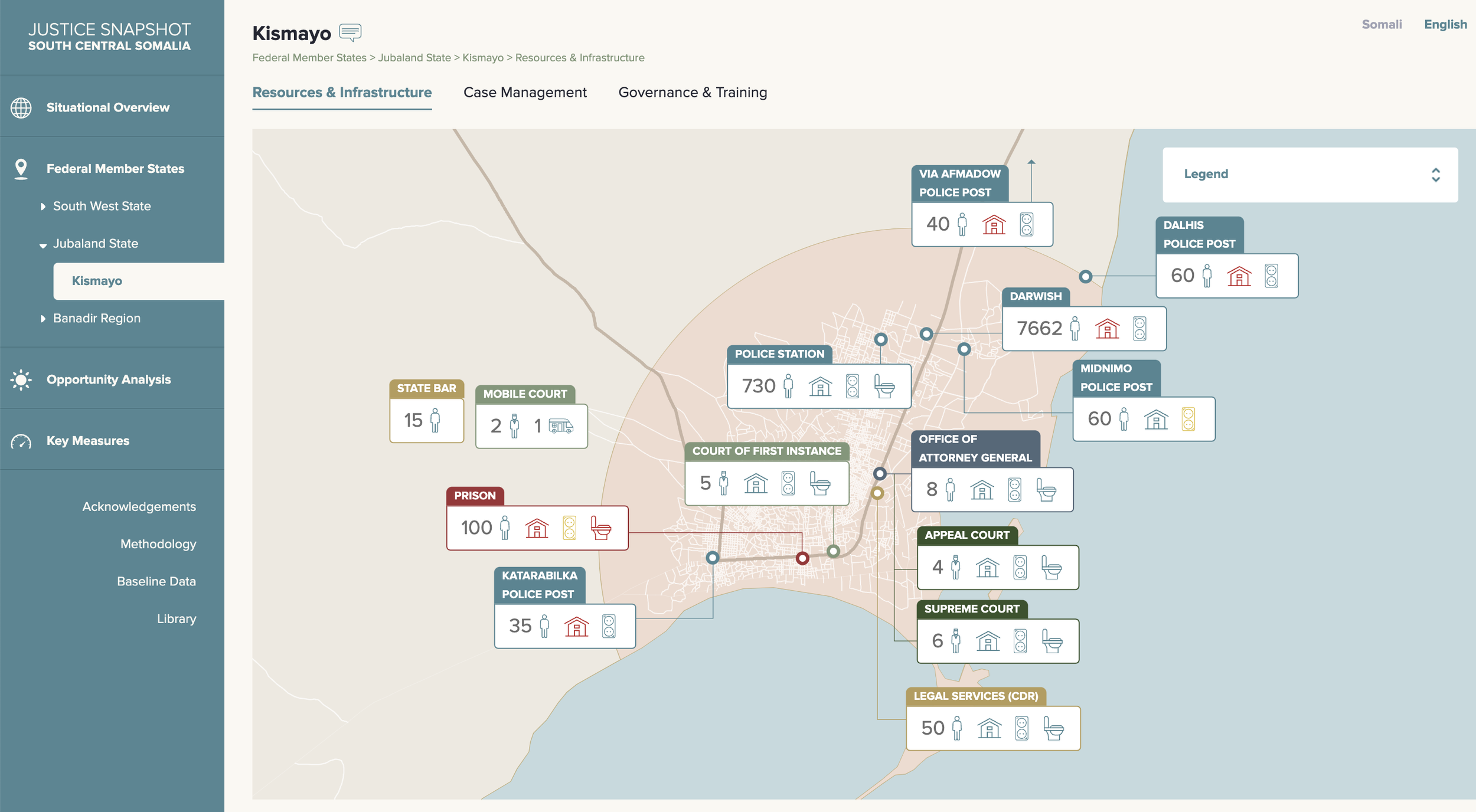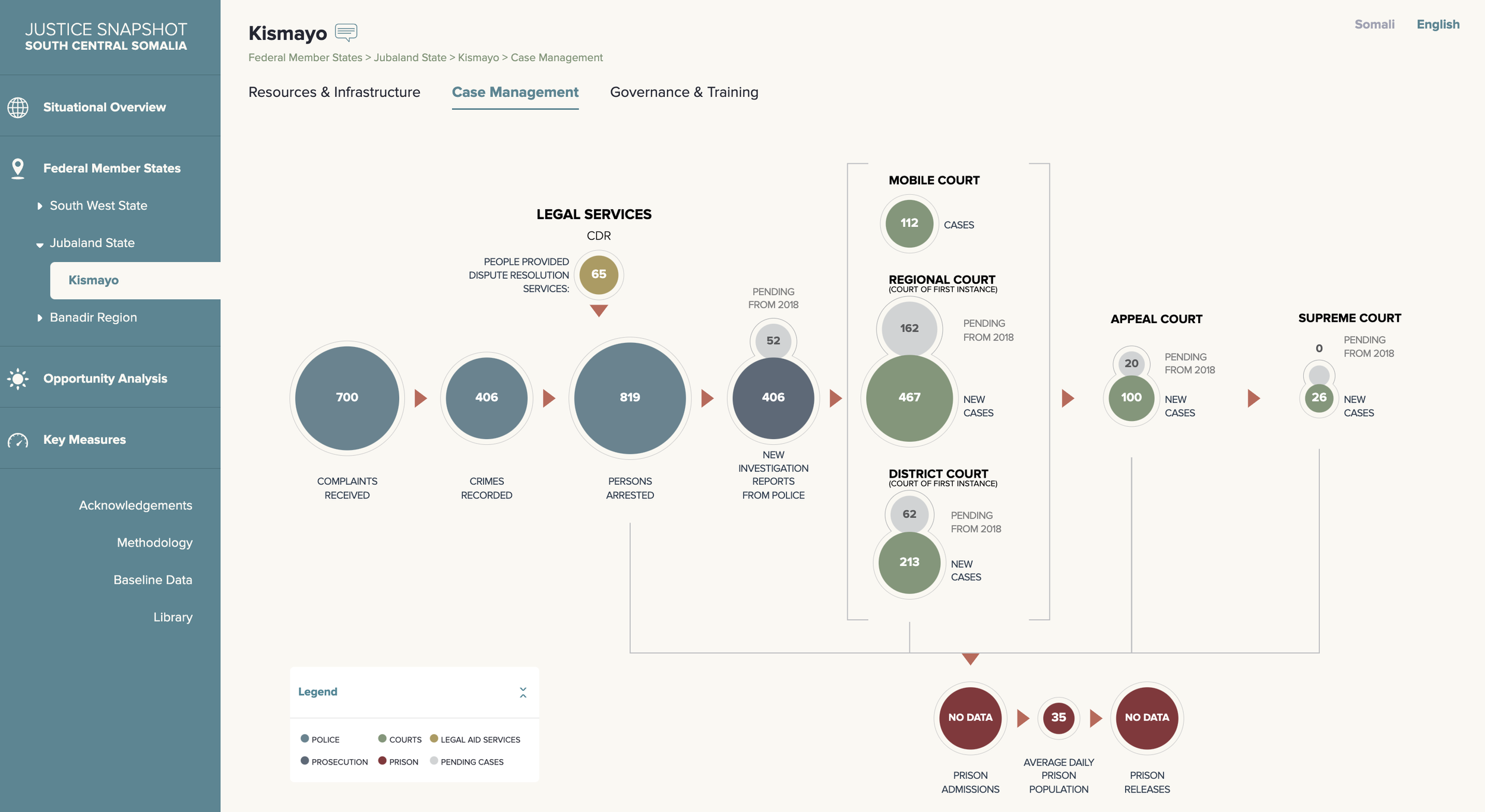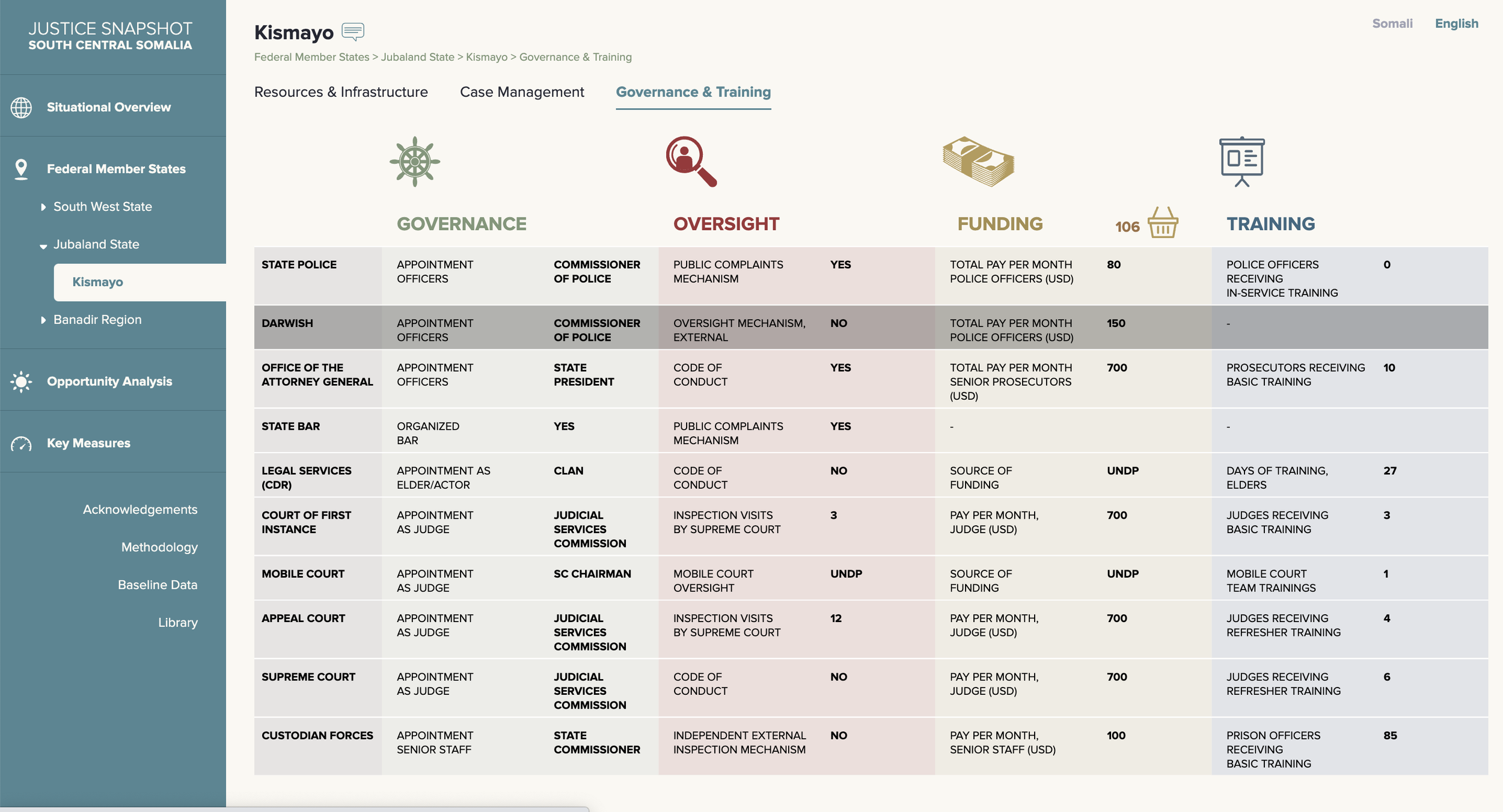What is the Justice Snapshot?
A quicker version of the Justice Audit, it is designed for a fast-paced, risk-laden environment in which the rule of law and justice institutions have been severely eroded by conflict or disaster - and takes 3 months to deliver.
Context in which it is needed
Countries recovering from conflict and / or disaster need urgent assistance. The Justice Snapshot provides a common evidence base for planning and costing early recovery in the justice system and monitoring and evaluation framework to measure progress.
“The South-Central Somalia Justice Snapshot is a shared public good. It informs a wider community of stakeholders and provides a strong evidence base to improve access to justice.”
-DFID/FCDO project manager, Nairobi, July 2020
Target Audience
National authorities
…to encourage system-wide thinking.
Law Schools, civil society organisations and researchers
…to promote discussion and inform policy.
International development community
…to harmonise their support around a common set of data.
Justice institutions
…to reflect their voice and challenges they face.
General Public
…to inform public debate and articulation of hitherto unmet needs.
Approach
Seven Steps
Steps 1 to 5: 3 months
Why it works
It provides context: bringing together information about geographic zones of control and security, violence against justice actors and the internal migration of people, as well as where people turn for justice. Together these data can inform a more responsive provision of justice services, especially where armed groups or other authorities, such as military, offer competing approaches.
It then offers a Roadmap with Key Measures based on the SDGs, national policies and international good practice going forward.
It is actionable: compiling data from the ground level of individual police stations, courthouses and prisons to identify weaknesses or gaps in personnel, infrastructure and material resources. The data enable planners to assess and address strategic building, equipping and training needs and to monitor and evaluate progress over time so as to scale up what works and remedy what does not.
It is accessible: applying a fast-paced and well tested methodology, the Snapshot uses live, interactive, updateable visualisations to bring into sharp relief nuances in data, instead of a static, 500-page report; while signaling discrepancies through data notes and making all source data available to users.
Deep-dive into the state of Kismayo (Justice Snapshot South central Somalia)
It is collaborative and transferable: engaging justice institutions from the beginning in collecting and analysing their own data and enabling national authorities to take over administration and update of the Snapshot following initial implementation.
It is objective and apolitical: generating a series of data-driven views of the justice system, ranging across security and migration to infrastructure/resources, case flow and governance - weaving them together to illustrate how the justice system is functioning.
“The [Ethiopia] Justice Snapshot is data rich. The visualisation is insightful. Despite the constraints, you have gone to a level of detail that may be a first for Ethiopia.”
-UNDP Resident Representative, Ethiopia, December 2021
LEADERSHIP | The Justice Snapshot is led and implemented by an international team of criminal justice experts.
The Justice Audit is led by
Johann Kriegler
A Founding Justice
Constitutional Court
South Africa
and advised by
Thomas F. Geraghty
Class of 1969 James B. Haddad
Professor of Law, Emeritus
Northwestern University
Pritzker School of Law
Chicago, IL, USA
Program implementation is carried out by
The Governance and Justice Group
The Governance and Justice Group (GJG) was founded in 2009 as an association of individual practitioners from many countries to help develop solutions to practical problems arising in the administration of criminal justice. The GJG works with governments, intergovernmental and non-governmental organisations as well as a range of international development agencies and universities.
Justice Mapping
Justice Mapping (JM) is a consulting network of subject area experts and information technology specialists who study criminal justice operations and surrounding conditions at the local level. JM produces data visualisation tools designed to help philanthropies, policymakers, and advocates reframe justice policy around places, coordinate operations in neighbourhoods, and reinvest in safer communities
For more information, visit
www.justicemapping.org
or contact Eric Cadora at
ecadora@justicemapping.org


